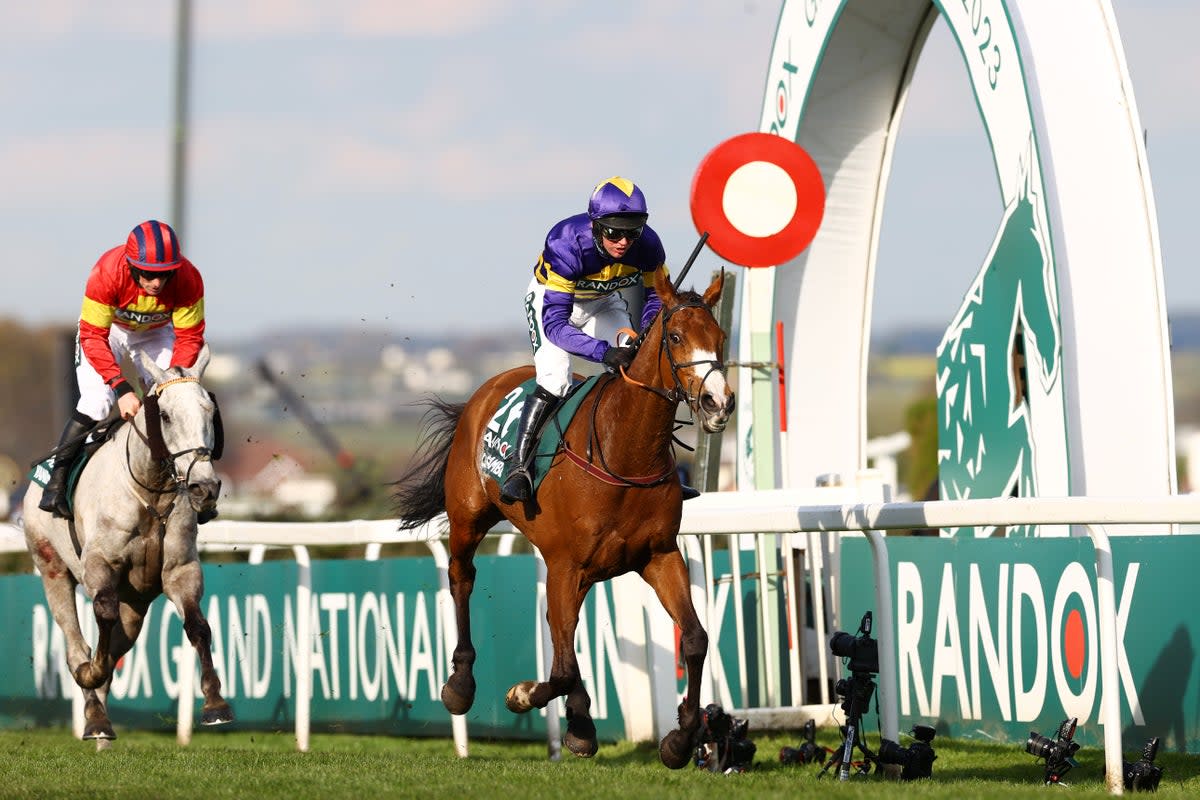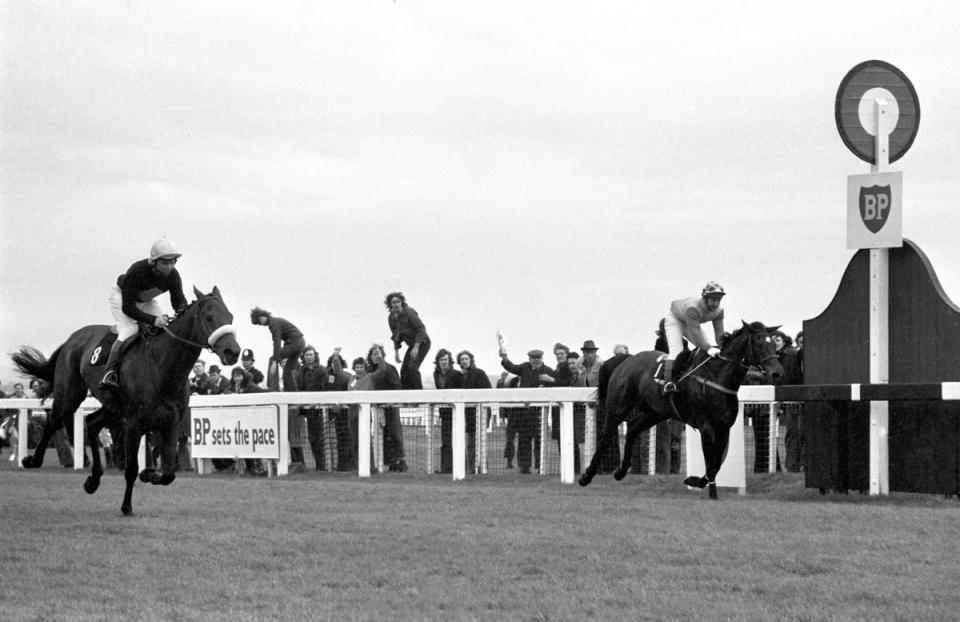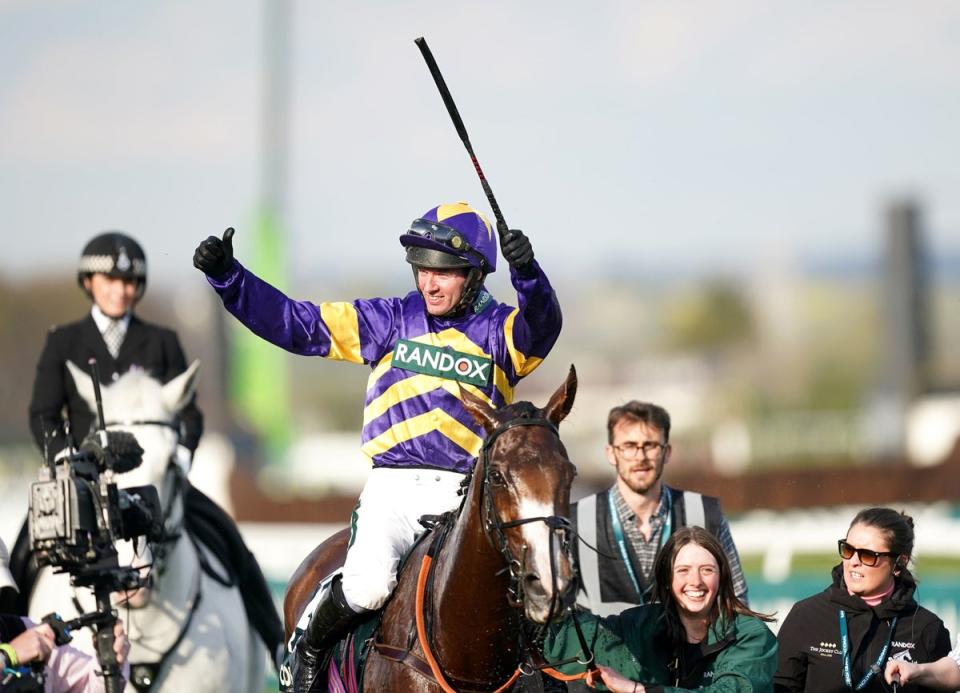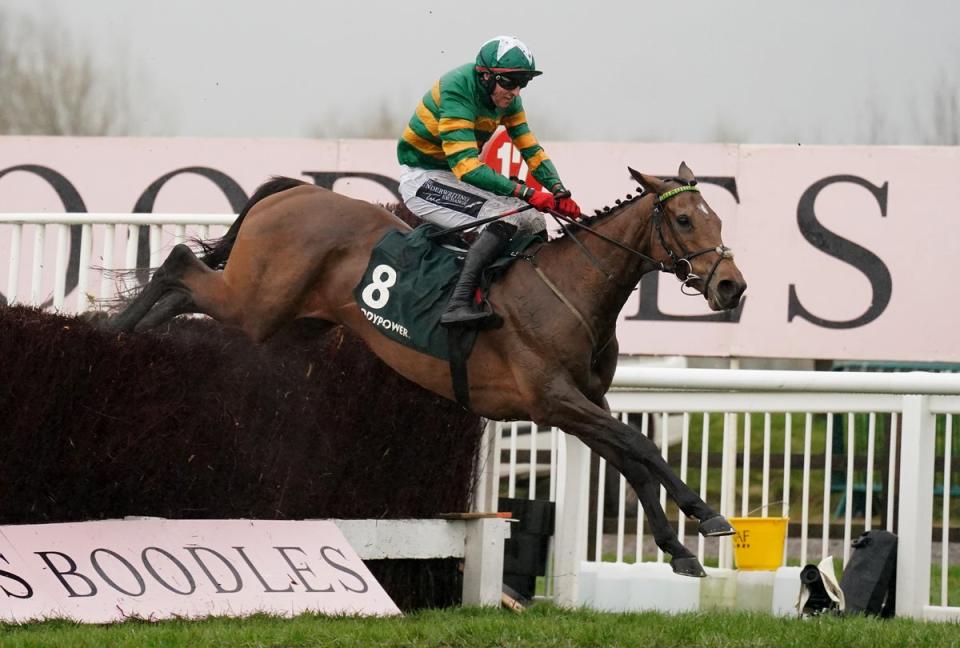Corach Rambler shoulders the weight of history in quest for second Grand National victory

In this modern world of technology, streaming platforms and countless television channels all vying for our attention, there are only a few sporting events that can garner genuine interest from the whole family at the same time.
The Fifa World Cup final, Andy Murray playing at Wimbledon, this summer’s Olympic Games in Paris to name just a few.
The Grand National sits proudly among them, an annual treat and glimpse into the world of National Hunt racing where the best horses compete on the most gruelling and iconic course to claim the ultimate prize.
History, admiration and half a million pounds are at stake for the 34 contenders who will line up behind the tape at four o’clock on Saturday afternoon. The crowds will be assembled at Aintree Racecourse, families will be huddled around TV screens, millions more will be following along through online blogs or listening to the commentary on the radio.
The Grand National transcends other races by being a living embodiment of history. A snapshot of the present that those watching on know will be remembered in the decades to come.
Name some of the great Grand Nationals of yesteryear; Crisp vs Red Rum in 1973, Foinavon’s lucky charge in 1967, Mon Mome’s 100-1 victory in 2009, Tiger Roll’s back-to-back wins in 2018 and 2019, they all elicit great memories of the past, of skill and endurance, of triumphs against the odds.

For the horses and their rider, this is what the Grand National is. A moment in time, where, for 10 minutes, they take centre stage in Britain’s collective consciousness and one of them gets to write their name into the history books.
Corach Rambler has already done so. The 2023 winner stormed to victory last April to the delight of trainer Lucinda Russell and jockey Derek Fox. He pulled away after the final jump, beating out Vanillier and Gaillard Du Mesnil and now the 10-year-old has his sights set on the pantheon of greats, to join an exclusive club of horses who have won the Grand National more than once. Only Red Rum and Tiger Roll have achieved that feat since the race started being shown on television to worldwide audiences.
It is not an easy task. Noble Yeats, who won the 2022 race, gave it a decent go last year but finished fourth. He’ll be in the field on Saturday once again, but his hopes will most likely come down to chance. Corach Rambler, who finished a strong third in the Gold Cup at Cheltenham in March, is touted to back up his previous win. Punters are more confidently backing him in the pre-race betting with his odds already shorter than last year’s when he set off as the 8-1 favourite.
Since 2000, only five favourites have claimed victory and Corach Rambler’s winning time of nine minutes 12 seconds wasn’t exactly a record breaker.

There will be competition from the likes of Vanillier, after his second-place finish in 2023, and the Willie Mullins-trained I Am Maximius who is ridden by the Cheltenham Festival leading jockey Paul Townend.
Meetingofthewaters, Mr Incredible, Panda Boy and Kitty’s Light are also ones to watch out for while higher-odds horses such as Delta Work, who beat Tiger Roll in the two-time champion’s final race, and Galia Des Liteaux, the only Dan Skelton-trained horse in the field, would not be surprising winners.
Gordon Elliott’s Galvin, though on a seven-race losing streak, tends to do well here and Limerick Lace, who won the Mares Chase at Cheltenham, should be considered too.
Of course, the nature of this race means any horse can win the Grand National. It’s partly a reason why the race is so beloved by racing and non-racing fans alike. It’s a race that mixes tradition and old-school values such as grit, pride, and determination with modern sensibilities like rider safety and animal welfare.
This melting pot of ideals, sport, and entertainment all coalesces into a short-term hit of pure drama and theatre.

But times are changing and so too is the Grand National. Animal rights activists disrupted last year’s race with protests and the death of Hill Sixteen prompted organisers to implement more rules.
This year the size of the field has been cut from 40 to 34 and the first fence is now 60 yards closer to the starting line to reduce the speed at which the horses take the opening jump. Softer materials are being used on all the fences with some, including the 11th, also being reduced in height.
It is now more difficult to qualify too. The minimum handicap rating for horses has gone up from 125 to 130, aligning it with all top-level races.
Yet none of these implementations will take away from the spectacle.
A four-mile battle across potentially arduous terrain, over 30 jumps of varying heights, with the best horses and jockeys drawing on all their experience, skill, and luck to take their one shot at glory.
The Grand National is a special one, it’s worth gathering the family for.

